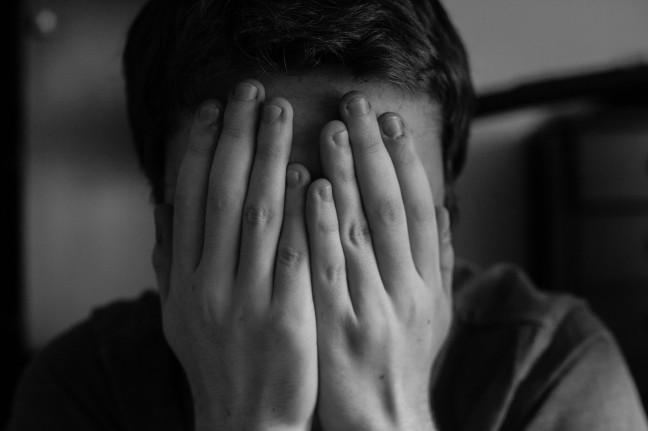We as students are assumed to be at this university because of our minds. However, some of us are here in spite of them. I was diagnosed with and put on medication for moderate-to-severe clinical depression in my junior year of high school. Ever since, I have been dealing with the ups and downs of this mental illness throughout my four years here at University of Wisconsin. I wrote about how my mental illness affected my time studying abroad, but now that I have been back in Wisconsin for a few semesters, I feel that this issue needs addressing again, if only to placate my own mind.
Letter to the editor: Depression is a carry-on: studying abroad with mental illness
As this semester slouches to its conclusion and my friends are looking forward to the long-awaited graduation ceremonies in May, I thought I might reach out to my peers who are struggling with their own mental illnesses.
I will not be graduating in May. For me, it’s been hard to focus on long-term goals when your body and mind decide what you can and cannot do today. Those little decisions can and do affect your long-term goals. The end of a month, let alone the end of a semester, is unfathomable to a person who can’t imagine the strength it will take to get to the end of the day. I’ve dropped classes I found interesting, left final papers unfinished, picked up shifts at my job when I knew I should have been in class, failed out of 100 level classes and found it nearly impossible to articulate why I was doing these things.
Depression is that two-headed animal that purrs in your ear that it’s ok to stay in bed, to skip class and that Social Sciences is an annoying building to get to even when you’re feeling good. Then, at the same time, depression admonishes you for choosing to do so, for even thinking such things. It tells you’re lazy, that this is so easy and that MY GOD everyone else can do it. All you have to defend yourself from this beast is a flimsy wooden shield that reads “GRADUATION!!!” in peeling letters.
Depression says both “you should,” and “how dare you.” You worry you’re not telling your parents enough because they love you, are rooting for you and can help you. And yet, wouldn’t it be selfish to make them concerned when you’ll probably feel fine in a few days? You oscillate between being unable to eat and then eating too much. It fogs your mind and suddenly the material in your favorite class slips through your hands like melting ice.
Your comprehension of what should be simple material is suddenly hiding behind a gauzy curtain just beyond your reach. You’re crying over essays you feel you don’t fully understand and that the beast in your head has convinced you that you have no claim to write. Your friends are so much more accomplished than you are, their theses, internships and grad school apps are making you feel small and like you’re failing.
But then, if you’re like me, your depression recedes. Your mind runs around, manically cleaning up the mess you made. You can complete assignments again, write pieces to send in to The Badger Herald, complete all your assignments on time and, most emblematic of mental illness (at least in my case), you wonder what in the world was stopping you from doing so in the first place. You say, “See! Look what you can do! You should be doing this all the time, no excuses.”
And just when you’re settling into this newfound motivation, the beast creeps up on you and suddenly it’s hard to articulate thoughts again, to smile or to get out of bed.
Depression also slyly convinces you that your problems aren’t “real.” That your professors won’t take you seriously when you tell them why you can’t complete the only paper you have to write for a class. That your friends won’t know what to say to you if you open up. Your depression whispers that the only reason you can’t do these things is a result of some innate, personal flaw you will never shake. Depression is a disease, a physical problem that disguises itself as a bad habit and like recovering from any other disease, depression requires a multi-faceted approach to conquer.
I want you to know that asking for help in these situations has nothing to do with pride. Sometimes self-care shouldn’t be contained to the self. Talk to your friends, your professors and your parents.
Your friends’ achievements can be impressive and laudable, but you should not be admiring them at the expense of yourself. Supporting and cheering them on should not be an opportunity for self-derision (something I have to remind myself everyday). My friends have been nothing but an amazing support system and your friends should be cheering you on too. If they are not, sometimes distancing yourself from toxic people in your life is for the best.
Be open with your professors. I qualify for accommodations through the McBurney Disability Center, which I am supposed to discuss with all my professors within the first week of classes. I didn’t this semester and it bit me in the ass. I dropped a class because I didn’t attend and fell behind. I was having a hard time with the material, but instead of going to office hours, I went back to bed. A month later – when I finally trekked up to Social Sciences – I had a professor of a different class call me into her office to warn me that I was going to fail the course if I didn’t start showing up and doing the work. I dropped that too.
For the most part, I have found the professors here to be remarkably understanding and compassionate. Many deal with mental illnesses themselves. I don’t exactly know why I didn’t talk to my professors this semester, when they have been so receptive in the past. I think, in the back of my mind, I believed that I didn’t deserve extra help or time on assignments. That’s the thing about depression. It twists and then defies logic sometimes.
Seek out the McBurney Disability Resource Center to see if you qualify for accommodations. Make plans with professors that will help you get through the semester. Try to keep them updated with how you are doing.
In addition, as much as you should open up to others, you should be kinder to yourself (again, advice I have yet to fully take). I think it’s important to be proud of yourself for even the smallest sparks of light you produce in your darkness.
Maybe you finally read the introduction of that textbook.
Maybe you wrote three pages of that 15 page paper due soon.
Maybe you drank lots of water and that made your body feel good.
Maybe you took your meds and went for a walk.
Maybe you called your mom and told her what you were going through.
Maybe this is the first day in weeks that you didn’t feel like hurting yourself, but to the naked eye, all you did was sit quietly in a coffee shop reading Buzzfeed lists.
Maybe you called your therapist for the first time in weeks to set up an appointment.
Maybe you just stayed in bed, drank mint tea, watched Bob’s Burgers and laughed for the first time in a while.
These instances are worthy of celebration. Your mind wants you to focus on the immediate present, or rather, the battle of the immediate present. When you’re depressed, it’s so important to realize that your everyday victories are no less important than achieving long-term goals. Or . . .
Maybe you did hurt yourself.
Maybe you don’t have a good support system.
Maybe nothing you do seems to combat the darkness in your mind.
You are no less worthy of celebration. There are multiple campus resources to help you see and believe this. University Health Services offers counseling services and a 24-hour mental health hotline at the number 608-265-5600 (select option 9). Checking yourself into the hospital for observation is not a defeat. It is a sign of strength. Any steps you take to help yourself should be applauded.
Here we are the end of the semester, some of us in better shape than others. Some of us will graduate, some might switch schools, or move home, or decide to work full time, or take a lighter course load, or switch majors or make one of the other myriad choices to gain the upper hand on our mental illnesses. I’ll be rooting for all of us.
Sarah Healy ([email protected]) is a senior majoring in history.





















